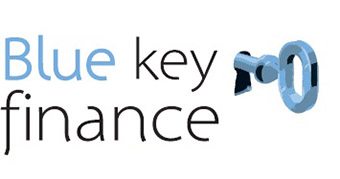20 auction terms you need to know before the bidding starts
Property auctions are full of terms that can easily confuse the uninitiated. You’ve got dummy bids, vendor bids, proxy bids and more.
Here’s a glossary of auction terms you should know before you start bidding.
- Absentee/proxy bid
If you can’t make the auction in person but still want to put in a bid, an absentee bidder can place a bid on your behalf. In this era of COVID-19, absentee bids can be made online via a digital form.
- Auction
Auctions can either take place at the site of the property up for auction or online through a virtual auction, where you can take a virtual tour of the property, watch the auction, and place a bid.
- Auctioneer
The agent responsible for selling the property on behalf of the seller.
- Bid
A price offer for the property made by a potential buyer.
- Bidders guide
You’ve got to be in it to win it. In order to place a recorded bid, you will need to have registered your details along with proof of identity. You do the same if you are bidding on someone’s behalf by also providing a letter of authority from them.
- Bidder/paddle number
The number assigned to each registered bidder, sometimes displayed on the iconic paddle.
- Cooling-off period
Up to five business days after the date of the contract, you can cancel a contract to buy property. Typically you’ll have to forfeit a 0.25% of the purchase price. However, there is no cooling-off period at auction.
- Commission
The amount you pay the auctioneer for selling the property. This is typically calculated as a percentage of the selling price.
- Deposit
A deposit is an initial paid portion of the purchase price. Lenders typically require a 20% deposit, but can sometimes offer less if the property buyer takes out lenders mortgage insurance.
- Dummy bid
Dummy bidding, when someone bids on the behalf of the seller, is illegal in Australia and can result in a fine of up to $55,000. However, the auctioneer is able to make one vendor bid on behalf of the seller, which is announced explicitly to the auction participants.
- Hammer price
The final sale price at auction, signified by the ‘fall of the hammer’ held by the auctioneer (or often a rolled-up brochure). No bids can be accepted after the hammer has fallen, and the highest bidder is legally obliged to sign the contract or pay a penalty.
- Market value
The market value is the price that would be negotiated by a willing buyer and seller after the property has been adequately advertised in the market.
- On the market
Once bidding exceeds the vendor’s reserve price – the minimum they will accept – the property is ‘on the market’ and will be sold to the highest bidder.
- Outbid
To offer a higher price for the property.
- Passed in
If no bid matches or exceeds the seller’s reserve, the property is ‘passed in’. Usually the highest bidder is then invited for private negotiations with the bidder.
- Reserve
The minimum amount the owner will take for the property. The reserve price can be amended at any time, but it needs to be in writing.
- Starting price
The lowest possible bid the first bidder must place.
- Vendor bid
A bid made by the auctioneer on behalf of the vendor. It’s used to give momentum to the bidding, and indicate that the vendor isn’t happy with the current bid price.
- Unconditional sale
A contract is conditional if the sale can only occur if terms such as a cooling off period or the approval of finance. By contrast, unconditional contracts legally oblige the buyers and sellers to follow through on the terms and conditions laid out in the contract alone.
- Under-quoting
A vendor sometimes advertises a property below what they know to be the market value in order to stoke interest in the sale.




Leave a Reply
Want to join the discussion?Feel free to contribute!